- History Classics
- Your Profile
- Find History on Facebook (Opens in a new window)
- Find History on Twitter (Opens in a new window)
- Find History on YouTube (Opens in a new window)
- Find History on Instagram (Opens in a new window)
- Find History on TikTok (Opens in a new window)
- This Day In History
- History Podcasts
- History Vault

Abraham Lincoln
By: History.com Editors
Updated: February 7, 2024 | Original: October 29, 2009

Abraham Lincoln , a self-taught lawyer, legislator and vocal opponent of slavery, was elected 16th president of the United States in November 1860, shortly before the outbreak of the Civil War. Lincoln proved to be a shrewd military strategist and a savvy leader: His Emancipation Proclamation paved the way for slavery’s abolition, while his Gettysburg Address stands as one of the most famous pieces of oratory in American history.
In April 1865, with the Union on the brink of victory, Abraham Lincoln was assassinated by Confederate sympathizer John Wilkes Booth. Lincoln’s assassination made him a martyr to the cause of liberty, and he is widely regarded as one of the greatest presidents in U.S. history.
Abraham Lincoln's Childhood and Early Life
Lincoln was born on February 12, 1809, to Nancy and Thomas Lincoln in a one-room log cabin in Hardin County, Kentucky . His family moved to southern Indiana in 1816. Lincoln’s formal schooling was limited to three brief periods in local schools, as he had to work constantly to support his family.
In 1830, his family moved to Macon County in southern Illinois , and Lincoln got a job working on a river flatboat hauling freight down the Mississippi River to New Orleans . After settling in the town of New Salem, Illinois, where he worked as a shopkeeper and a postmaster, Lincoln became involved in local politics as a supporter of the Whig Party , winning election to the Illinois state legislature in 1834.
Like his Whig heroes Henry Clay and Daniel Webster , Lincoln opposed the spread of slavery to the territories, and had a grand vision of the expanding United States, with a focus on commerce and cities rather than agriculture.
Did you know? The war years were difficult for Abraham Lincoln and his family. After his young son Willie died of typhoid fever in 1862, the emotionally fragile Mary Lincoln, widely unpopular for her frivolity and spendthrift ways, held seances in the White House in the hopes of communicating with him, earning her even more derision.
Lincoln taught himself law, passing the bar examination in 1836. The following year, he moved to the newly named state capital of Springfield. For the next few years, he worked there as a lawyer and served clients ranging from individual residents of small towns to national railroad lines.
He met Mary Todd , a well-to-do Kentucky belle with many suitors (including Lincoln’s future political rival, Stephen Douglas ), and they married in 1842. The Lincolns went on to have four children together, though only one would live into adulthood: Robert Todd Lincoln (1843–1926), Edward Baker Lincoln (1846–1850), William Wallace Lincoln (1850–1862) and Thomas “Tad” Lincoln (1853-1871).
Abraham Lincoln Enters Politics
Lincoln won election to the U.S. House of Representatives in 1846 and began serving his term the following year. As a congressman, Lincoln was unpopular with many Illinois voters for his strong stance against the Mexican-American War. Promising not to seek reelection, he returned to Springfield in 1849.
Events conspired to push him back into national politics, however: Douglas, a leading Democrat in Congress, had pushed through the passage of the Kansas-Nebraska Act (1854), which declared that the voters of each territory, rather than the federal government, had the right to decide whether the territory should be slave or free.
On October 16, 1854, Lincoln went before a large crowd in Peoria to debate the merits of the Kansas-Nebraska Act with Douglas, denouncing slavery and its extension and calling the institution a violation of the most basic tenets of the Declaration of Independence .
With the Whig Party in ruins, Lincoln joined the new Republican Party–formed largely in opposition to slavery’s extension into the territories–in 1856 and ran for the Senate again that year (he had campaigned unsuccessfully for the seat in 1855 as well). In June, Lincoln delivered his now-famous “house divided” speech, in which he quoted from the Gospels to illustrate his belief that “this government cannot endure, permanently, half slave and half free.”
Lincoln then squared off against Douglas in a series of famous debates; though he lost the Senate election, Lincoln’s performance made his reputation nationally.

Abraham Lincoln’s Frontier Childhood Was Filled With Hardship
Rugged conditions. Heavy labor. Minimal schooling. And a mother gone too soon.
How a Female Pinkerton Detective Helped Save Abraham Lincoln’s Life
In 1861, Kate Warne kept the president‑elect safe from an assassination plot on his train journey to Washington.
5 Things You May Not Know About Abraham Lincoln, Slavery and Emancipation
The 16th U.S. president was firm in believing slavery was morally wrong, but his views on racial equality were sometimes more complicated.
Abraham Lincoln’s 1860 Presidential Campaign
Lincoln’s profile rose even higher in early 1860 after he delivered another rousing speech at New York City’s Cooper Union. That May, Republicans chose Lincoln as their candidate for president, passing over Senator William H. Seward of New York and other powerful contenders in favor of the rangy Illinois lawyer with only one undistinguished congressional term under his belt.
In the general election, Lincoln again faced Douglas, who represented the northern Democrats; southern Democrats had nominated John C. Breckenridge of Kentucky, while John Bell ran for the brand new Constitutional Union Party. With Breckenridge and Bell splitting the vote in the South, Lincoln won most of the North and carried the Electoral College to win the White House .
He built an exceptionally strong cabinet composed of many of his political rivals, including Seward, Salmon P. Chase, Edward Bates and Edwin M. Stanton .
Abraham Lincoln and the Civil War
After years of sectional tensions, the election of an antislavery northerner as the 16th president of the United States drove many southerners over the brink. By the time Lincoln was inaugurated as 16th U.S. president in March 1861, seven southern states had seceded from the Union and formed the Confederate States of America .
Lincoln ordered a fleet of Union ships to supply the federal Fort Sumter in South Carolina in April. The Confederates fired on both the fort and the Union fleet, beginning the Civil War . Hopes for a quick Union victory were dashed by defeat in the Battle of Bull Run (Manassas) , and Lincoln called for 500,000 more troops as both sides prepared for a long conflict.
While the Confederate leader Jefferson Davis was a West Point graduate, Mexican War hero and former secretary of war, Lincoln had only a brief and undistinguished period of service in the Black Hawk War (1832) to his credit. He surprised many when he proved to be a capable wartime leader, learning quickly about strategy and tactics in the early years of the Civil War, and about choosing the ablest commanders.
General George McClellan , though beloved by his troops, continually frustrated Lincoln with his reluctance to advance, and when McClellan failed to pursue Robert E. Lee’s retreating Confederate Army in the aftermath of the Union victory at Antietam in September 1862, Lincoln removed him from command.
During the war, Lincoln drew criticism for suspending some civil liberties, including the right of habeas corpus , but he considered such measures necessary to win the war.
Emancipation Proclamation and Gettysburg Address
Shortly after the Battle of Antietam (Sharpsburg), Lincoln issued a preliminary Emancipation Proclamation , which took effect on January 1, 1863, and freed all of the enslaved people in the rebellious states not under federal control, but left those in the border states (loyal to the Union) in bondage.
Though Lincoln once maintained that his “paramount object in this struggle is to save the Union, and is not either to save or destroy slavery,” he nonetheless came to regard emancipation as one of his greatest achievements and would argue for the passage of a constitutional amendment outlawing slavery (eventually passed as the 13th Amendment after his death in 1865).
Two important Union victories in July 1863—at Vicksburg, Mississippi, and at the Battle of Gettysburg in Pennsylvania—finally turned the tide of the war. General George Meade missed the opportunity to deliver a final blow against Lee’s army at Gettysburg, and Lincoln would turn by early 1864 to the victor at Vicksburg, Ulysses S. Grant , as supreme commander of the Union forces.
In November 1863, Lincoln delivered a brief speech (just 272 words) at the dedication ceremony for the new national cemetery at Gettysburg. Published widely, the Gettysburg Address eloquently expressed the war’s purpose, harking back to the Founding Fathers, the Declaration of Independence and the pursuit of human equality. It became the most famous speech of Lincoln’s presidency, and one of the most widely quoted speeches in history.
Abraham Lincoln Wins 1864 Presidential Election
In 1864, Lincoln faced a tough reelection battle against the Democratic nominee, the former Union General George McClellan, but Union victories in battle (especially General William T. Sherman’s capture of Atlanta in September) swung many votes the president’s way. In his second inaugural address, delivered on March 4, 1865, Lincoln addressed the need to reconstruct the South and rebuild the Union: “With malice toward none; with charity for all.”
As Sherman marched triumphantly northward through the Carolinas after staging his March to the Sea from Atlanta, Lee surrendered to Grant at Appomattox Court House , Virginia , on April 9. Union victory was near, and Lincoln gave a speech on the White House lawn on April 11, urging his audience to welcome the southern states back into the fold. Tragically, Lincoln would not live to help carry out his vision of Reconstruction .
How Lincoln and Grant’s Partnership Won the Civil War
Abraham Lincoln was disappointed by most of his generals—but not Ulysses S. Grant.
Abraham Lincoln in Photos: How the Presidency Aged Him
Photographs taken of Lincoln between 1859 and 1865 reveal how increasingly careworn he became.
Abraham Lincoln’s Funeral Train: How America Mourned for Three Weeks
Millions of Americans bade farewell to the assassinated president as his body made a 1,700‑mile journey home.
Abraham Lincoln’s Assassination
On the night of April 14, 1865, the actor and Confederate sympathizer John Wilkes Booth slipped into the president’s box at Ford’s Theatre in Washington, D.C., and shot him point-blank in the back of the head. Lincoln was carried to a boardinghouse across the street from the theater, but he never regained consciousness, and died in the early morning hours of April 15, 1865.
Lincoln’s assassination made him a national martyr. On April 21, 1865, a train carrying his coffin left Washington, D.C. on its way to Springfield, Illinois, where he would be buried on May 4. Abraham Lincoln’s funeral train traveled through 180 cities and seven states so mourners could pay homage to the fallen president.
Today, Lincoln’s birthday—alongside the birthday of George Washington —is honored on President’s Day , which falls on the third Monday of February.
Abraham Lincoln Quotes
“Nothing valuable can be lost by taking time.”
“I want it said of me by those who knew me best, that I always plucked a thistle and planted a flower where I thought a flower would grow.”
“I am rather inclined to silence, and whether that be wise or not, it is at least more unusual nowadays to find a man who can hold his tongue than to find one who cannot.”
“I am exceedingly anxious that this Union, the Constitution, and the liberties of the people shall be perpetuated in accordance with the original idea for which that struggle was made, and I shall be most happy indeed if I shall be a humble instrument in the hands of the Almighty, and of this, his almost chosen people, for perpetuating the object of that great struggle.”
“This is essentially a People's contest. On the side of the Union, it is a struggle for maintaining in the world, that form, and substance of government, whose leading object is, to elevate the condition of men—to lift artificial weights from all shoulders—to clear the paths of laudable pursuit for all—to afford all, an unfettered start, and a fair chance, in the race of life.”
“Fourscore and seven years ago our fathers brought forth on this continent a new nation, conceived in liberty and dedicated to the proposition that all men are created equal.”
“This nation, under God, shall have a new birth of freedom—and that government of the people, by the people, for the people, shall not perish from the earth.”

HISTORY Vault: Abraham Lincoln
A definitive biography of the 16th U.S. president, the man who led the country during its bloodiest war and greatest crisis.

Sign up for Inside History
Get HISTORY’s most fascinating stories delivered to your inbox three times a week.
By submitting your information, you agree to receive emails from HISTORY and A+E Networks. You can opt out at any time. You must be 16 years or older and a resident of the United States.
More details : Privacy Notice | Terms of Use | Contact Us
Abraham Lincoln
President Abraham Lincoln preserved the Union during the American Civil War and issued the Emancipation Proclamation, freeing enslaved people.
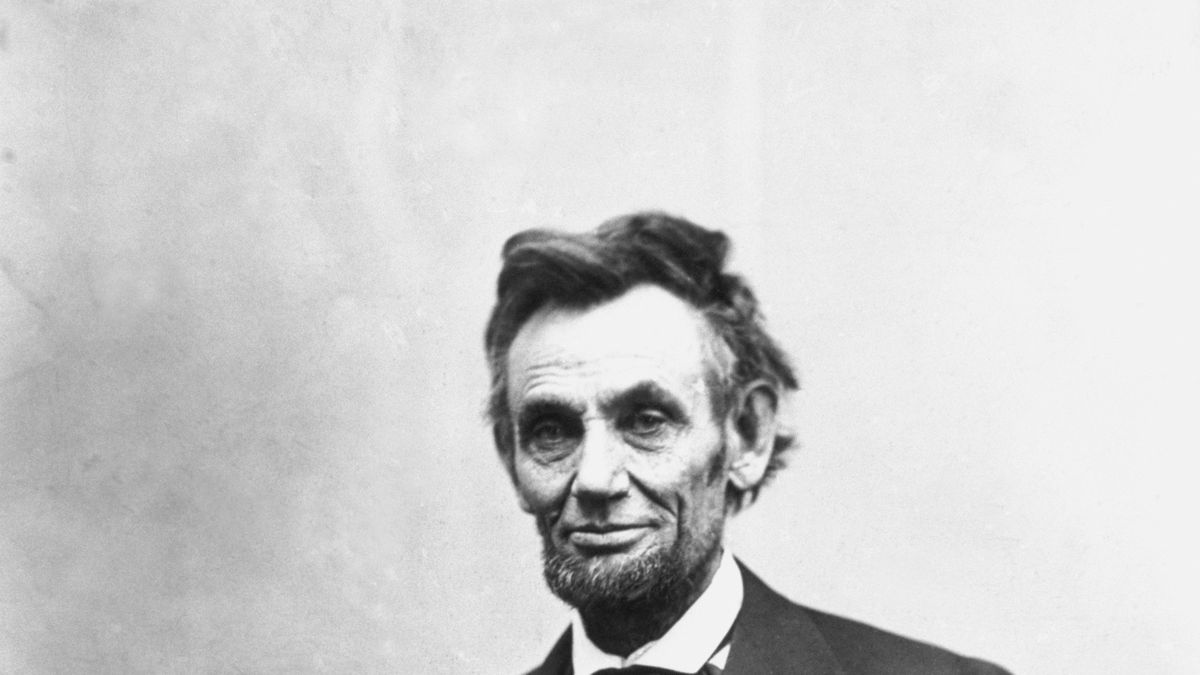
Who Was Abraham Lincoln?
Quick facts, early life, parents, and education, how tall was abraham lincoln, wrestling hobby and legal career, wife and children, political career, lincoln and slavery, senate race, u.s. president, civil war begins, emancipation proclamation, gettysburg address, civil war ends and lincoln’s reelection, assassination and funeral, abraham lincoln’s hat, abraham lincoln in movies and tv.
Abraham Lincoln was the 16 th president of the United States , serving from 1861 to 1865, and is regarded as one of America’s greatest heroes due to his roles in guiding the Union through the Civil War and working to emancipate enslaved people. His eloquent support of democracy and insistence that the Union was worth saving embody the ideals of self-government that all nations strive to achieve. In 1863, he issued the Emancipation Proclamation, which freed slaves across the Confederacy. Lincoln’s rise from humble beginnings to achieving the highest office in the land is a remarkable story, and his death is equally notably. He was assassinated by John Wilkes Booth in 1865, at age 56, as the country was slowly beginning to reunify following the war. Lincoln’s distinctively humane personality and incredible impact on the nation have endowed him with an enduring legacy.
FULL NAME: Abraham Lincoln BORN: February 12, 1809 DIED: April 15, 1865 BIRTHPLACE: Hodgenville, Kentucky SPOUSE: Mary Todd Lincoln (m. 1842) CHILDREN: Robert Todd Lincoln , Edward Baker Lincoln, William Wallace Lincoln, and Thomas “Tad” Lincoln ASTROLOGICAL SIGN: Aquarius HEIGHT: 6 feet 4 inches
Abraham Lincoln was born on February 12, 1809, to parents Thomas Lincoln and Nancy Hanks Lincoln in rural Hodgenville, Kentucky.
Thomas was a strong and determined pioneer who found a moderate level of prosperity and was well respected in the community. The couple had two other children: Lincoln’s older sister, Sarah, and younger brother, Thomas, who died in infancy. His death wasn’t the only tragedy the family would endure.
In 1817, the Lincolns were forced to move from young Abraham’s Kentucky birthplace to Perry County, Indiana, due to a land dispute. In Indiana, the family “squatted” on public land to scrap out a living in a crude shelter, hunting game and farming a small plot. Lincoln’s father was eventually able to buy the land.
When Lincoln was 9 years old, his 34-year-old mother died of tremetol, more commonly known as milk sickness, on October 5, 1818. The event was devastating to the young boy, who grew more alienated from his father and quietly resented the hard work placed on him at an early age.
In December 1819, just over a year after his mother’s death, Lincoln’s father Thomas married Sarah Bush Johnston, a Kentucky widow with three children of her own. She was a strong and affectionate woman with whom Lincoln quickly bonded.
Although both his parents were most likely illiterate, Thomas’ new wife Sarah encouraged Lincoln to read. It was while growing into manhood that Lincoln received his formal education—an estimated total of 18 months—a few days or weeks at a time.
Reading material was in short supply in the Indiana wilderness. Neighbors recalled how Lincoln would walk for miles to borrow a book. He undoubtedly read the family Bible and probably other popular books at that time such as Robinson Crusoe, Pilgrim’s Progres s, and Aesop’s Fable s.
In March 1830, the family again migrated, this time to Macon County, Illinois. When his father moved the family again to Coles County, 22-year-old Lincoln struck out on his own, making a living in manual labor.
Lincoln was 6 feet 4 inches tall, rawboned and lanky yet muscular and physically strong. He spoke with a backwoods twang and walked with a long-striding gait. He was known for his skill in wielding an ax and early on made a living splitting wood for fire and rail fencing.
Young Lincoln eventually migrated to the small community of New Salem, Illinois, where over a period of years he worked as a shopkeeper, postmaster, and eventually general store owner. It was through working with the public that Lincoln acquired social skills and honed a storytelling talent that made him popular with the locals.
Not surprising given his imposing frame, Lincoln was an excellent wrestler and had only one recorded loss—to Hank Thompson in 1832—over a span of 12 years. A shopkeeper who employed Lincoln in New Salem, Illinois, reportedly arranged bouts for him as a way to promote the business. Lincoln notably beat a local champion named Jack Armstrong and became somewhat of a hero. (The National Wrestling Hall of Fame posthumously gave Lincoln its Outstanding American Award in 1992.)
When the Black Hawk War broke out in 1832 between the United States and Native Americans, the volunteers in the area elected Lincoln to be their captain. He saw no combat during this time, save for “a good many bloody struggles with the mosquitoes,” but was able to make several important political connections.
As he was starting his political career in the early 1830s, Lincoln decided to become a lawyer. He taught himself the law by reading William Blackstone’s Commentaries on the Laws of England . After being admitted to the bar in 1837, he moved to Springfield, Illinois, and began to practice in the John T. Stuart law firm.
In 1844, Lincoln partnered with William Herndon in the practice of law. Although the two had different jurisprudent styles, they developed a close professional and personal relationship.
Lincoln made a good living in his early years as a lawyer but found that Springfield alone didn’t offer enough work. So to supplement his income, he followed the court as it made its rounds on the circuit to the various county seats in Illinois.
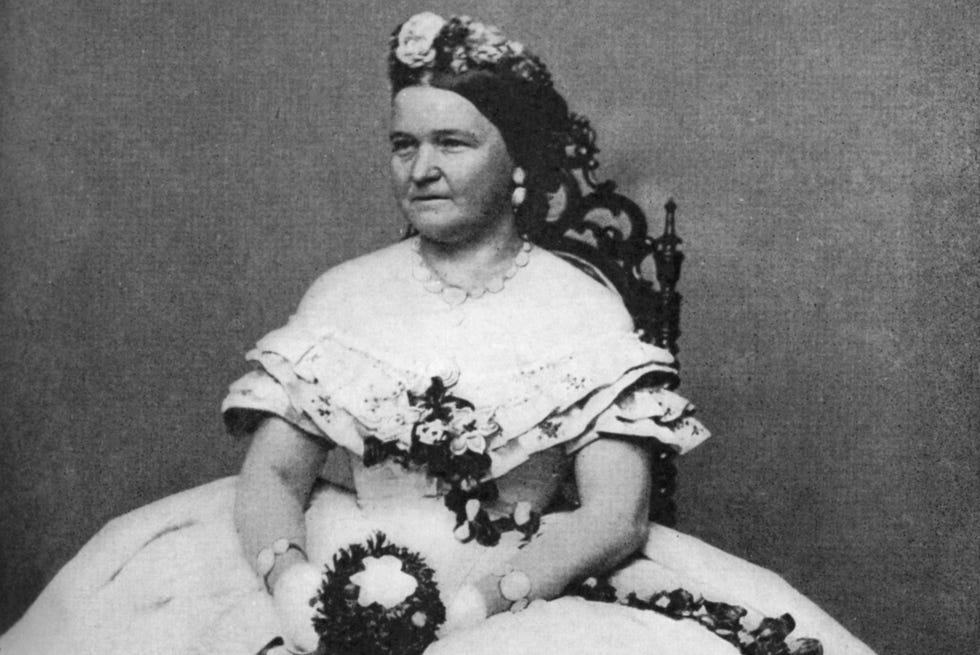
On November 4, 1842, Lincoln wed Mary Todd , a high-spirited, well-educated woman from a distinguished Kentucky family. Although they were married until Lincoln’s death, their relationship had a history of instability.
When the couple became engaged in 1840, many of their friends and family couldn’t understand Mary’s attraction; at times, Lincoln questioned it himself. In 1841, the engagement was suddenly broken off, most likely at Lincoln’s initiative. Mary and Lincoln met later at a social function and eventually did get married.
The couple had four sons— Robert Todd , Edward Baker, William Wallace, and Thomas “Tad”—of whom only Robert survived to adulthood.
Before marrying Todd, Lincoln was involved with other potential matches. Around 1837, he purportedly met and became romantically involved with Anne Rutledge. Before they had a chance to be engaged, a wave of typhoid fever came over New Salem, and Anne died at age 22.
Her death was said to have left Lincoln severely depressed. However, several historians disagree on the extent of Lincoln’s relationship with Rutledge, and his level of sorrow at her death might be more the makings of legend.
About a year after the death of Rutledge, Lincoln courted Mary Owens. The two saw each other for a few months, and marriage was considered. But in time, Lincoln called off the match.
In 1834, Lincoln began his political career and was elected to the Illinois state legislature as a member of the Whig Party . More than a decade later, from 1847 to 1849, he served a single term in the U.S. House of Representatives. His foray into national politics seemed to be as unremarkable as it was brief. He was the lone Whig from Illinois, showing party loyalty but finding few political allies.
As a congressman, Lincoln used his term in office to speak out against the Mexican-American War and supported Zachary Taylor for president in 1848. His criticism of the war made him unpopular back home, and he decided not to run for second term. Instead, he returned to Springfield to practice law.
By the 1850s, the railroad industry was moving west, and Illinois found itself becoming a major hub for various companies. Lincoln served as a lobbyist for the Illinois Central Railroad as its company attorney.
Success in several court cases brought other business clients as well, including banks, insurance companies, and manufacturing firms. Lincoln also worked in some criminal trials.
In one case, a witness claimed that he could identify Lincoln’s client who was accused of murder, because of the intense light from a full moon. Lincoln referred to an almanac and proved that the night in question had been too dark for the witness to see anything clearly. His client was acquitted.
As a member of the Illinois state legislature, Lincoln supported the Whig politics of government-sponsored infrastructure and protective tariffs. This political understanding led him to formulate his early views on slavery, not so much as a moral wrong, but as an impediment to economic development.
In 1854, Congress passed the Kansas-Nebraska Act , which repealed the Missouri Compromise , allowing individual states and territories to decide for themselves whether to allow slavery. The law provoked violent opposition in Kansas and Illinois, and it gave rise to today’s Republican Party .
This awakened Lincoln’s political zeal once again, and his views on slavery moved more toward moral indignation. Lincoln joined the Republican Party in 1856.
In 1857, the Supreme Court issued its controversial Dred Scott decision, declaring Black people were not citizens and had no inherent rights. Although Lincoln felt Black people weren’t equal to whites, he believed America’s founders intended that all men were created with certain inalienable rights.
Lincoln decided to challenge sitting U.S. Senator Stephen Douglas for his seat. In his nomination acceptance speech, he criticized Douglas, the Supreme Court , and President James Buchanan for promoting slavery then declared “a house divided cannot stand.”
During Lincoln’s 1858 U.S. Senate campaign against Douglas, he participated in seven debates held in different cities across Illinois. The two candidates didn’t disappoint, giving stirring debates on issues such as states’ rights and western expansion. But the central issue was slavery.
Newspapers intensely covered the debates, often times with partisan commentary. In the end, the state legislature elected Douglas, but the exposure vaulted Lincoln into national politics.
With his newly enhanced political profile, in 1860, political operatives in Illinois organized a campaign to support Lincoln for the presidency. On May 18, at the Republican National Convention in Chicago, Lincoln surpassed better-known candidates such as William Seward of New York and Salmon P. Chase of Ohio. Lincoln’s nomination was due, in part, to his moderate views on slavery, his support for improving the national infrastructure, and the protective tariff.
In the November 1860 general election, Lincoln faced his friend and rival Stephen Douglas, this time besting him in a four-way race that included John C. Breckinridge of the Northern Democrats and John Bell of the Constitution Party. Lincoln received not quite 40 percent of the popular vote but carried 180 of 303 Electoral College votes, thus winning the U.S. presidency. He grew his trademark beard after his election.
Lincoln’s Cabinet
Following his election to the presidency in 1860, Lincoln selected a strong cabinet composed of many of his political rivals, including William Seward, Salmon P. Chase, Edward Bates, and Edwin Stanton.
Formed out the adage “Hold your friends close and your enemies closer,” Lincoln’s cabinet became one of his strongest assets in his first term in office, and he would need them as the clouds of war gathered over the nation the following year.
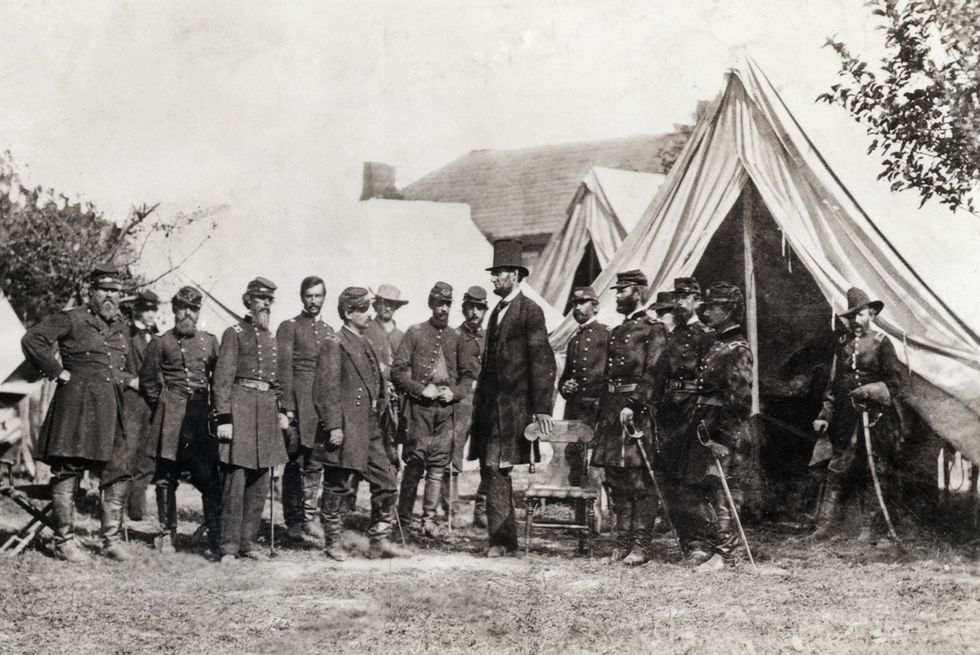
Before Lincoln’s inauguration in March 1861, seven Southern states had seceded from the Union, and by April, the U.S. military installation Fort Sumter was under siege in Charleston Harbor, South Carolina. In the early morning hours of April 12, 1861, the guns stationed to protect the harbor blazed toward the fort, signaling the start of the U.S. Civil War , America’s costliest and bloodiest war.
The newly President Lincoln responded to the crisis wielding powers as no other president before him: He distributed $2 million from the Treasury for war material without an appropriation from Congress; he called for 75,000 volunteers into military service without a declaration of war; and he suspended the writ of habeas corpus, allowing for the arrest and imprisonment of suspected Confederate States sympathizers without a warrant.
Crushing the rebellion would be difficult under any circumstances, but the Civil War, after decades of white-hot partisan politics, was especially onerous. From all directions, Lincoln faced disparagement and defiance. He was often at odds with his generals, his cabinet, his party, and a majority of the American people.
On January 1, 1863, Lincoln delivered his official Emancipation Proclamation , reshaping the cause of the Civil War from saving the Union to abolishing slavery.
The Union Army’s first year and a half of battlefield defeats made it difficult to keep morale high and support strong for a reunification of the nation. And the Union victory at Antietam on September 22, 1862, while by no means conclusive, was hopeful. It gave Lincoln the confidence to officially change the goals of the war. On that same day, he issued a preliminary proclamation that slaves in states rebelling against the Union would be free as of January 1.
The Emancipation Proclamation stated that all individuals who were held as enslaved people in rebellious states “henceforward shall be free.” The action was more symbolic than effective because the North didn’t control any states in rebellion, and the proclamation didn’t apply to border states, Tennessee, or some Louisiana parishes.
As a result, the Union army shared the Proclamation’s mandate only after it had taken control of Confederate territory. In the far reaches of western Texas, that day finally came on June 19, 1865—more than two and a half years after the Emancipation Proclamation took effect. For decades, many Black Americans have celebrated this anniversary, known as Juneteenth or Emancipation Day, and in 2021, President Joe Biden made Juneteenth a national holiday.
Still, the Emancipation Proclamation did have some immediate impact. It permitted Black Americans to serve in the Union Army for the first time, which contributed to the eventual Union victory. The historic declaration also paved the way for the passage of the 13 th Amendment that ended legal slavery in the United States.
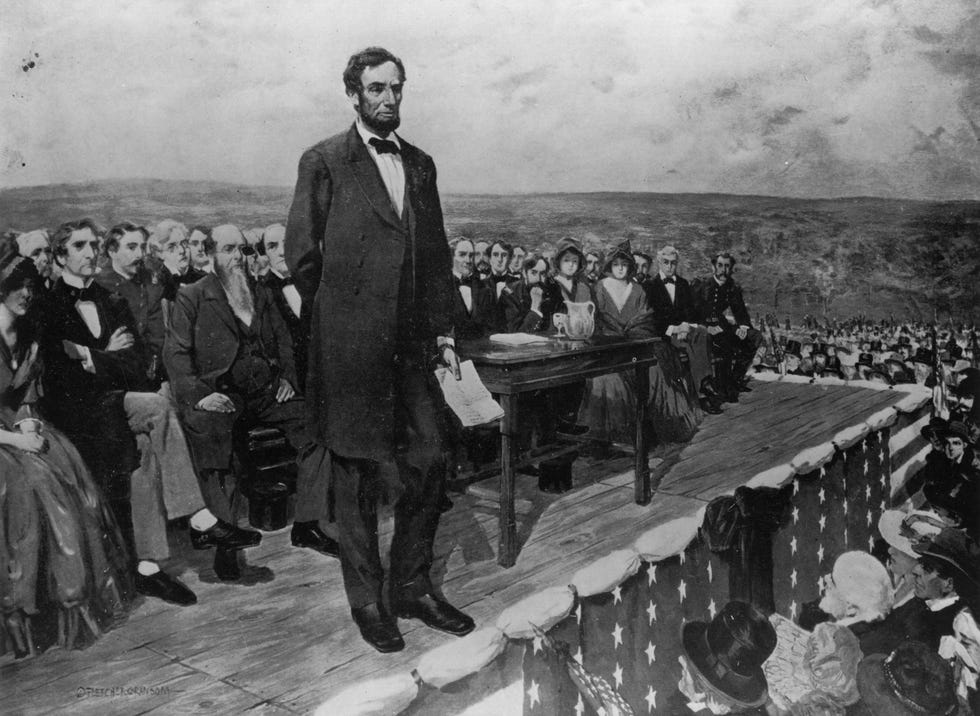
On November 19, 1863, Lincoln delivered what would become his most famous speech and one of the most important speeches in American history: the Gettysburg Address .
Addressing a crowd of around 15,000 people, Lincoln delivered his 272-word speech at one of the bloodiest battlefields of the Civil War, the Gettysburg National Cemetery in Pennsylvania. The Civil War, Lincoln said, was the ultimate test of the preservation of the Union created in 1776, and the people who died at Gettysburg fought to uphold this cause.
Lincoln evoked the Declaration of Independence , saying it was up to the living to ensure that the “government of the people, by the people, for the people, shall not perish from the earth,” and this Union was “dedicated to the proposition that all men are created equal.”
A common interpretation was that the president was expanding the cause of the Civil War from simply reunifying the Union to also fighting for equality and abolishing slavery.
Following Lincoln’s Emancipation Proclamation in 1863, the war effort gradually improved for the North, though more by attrition than by brilliant military victories.
But by 1864, the Confederate armies had eluded major defeat and Lincoln was convinced he’d be a one-term president. His nemesis George B. McClellan , the former commander of the Army of the Potomac, challenged him for the presidency, but the contest wasn’t even close. Lincoln received 55 percent of the popular vote and 212 of 243 electoral votes.
On April 9, 1865, General Robert E. Lee , commander of the Army of Virginia, surrendered his forces to Union General Ulysses S. Grant . The Civil War was for all intents and purposes over.
Reconstruction had already began during the Civil War, as early as 1863 in areas firmly under Union military control, and Lincoln favored a policy of quick reunification with a minimum of retribution. He was confronted by a radical group of Republicans in Congress that wanted complete allegiance and repentance from former Confederates. Before a political debate had any chance to firmly develop, Lincoln was killed.
Lincoln was assassinated on April 14, 1865, by well-known actor and Confederate sympathizer John Wilkes Booth at Ford’s Theatre in Washington. Lincoln was taken to the Petersen House across the street and laid in a coma for nine hours before dying the next morning. He was 56. His death was mourned by millions of citizens in the North and South alike.
Lincoln’s body first lay in state at the U. S. Capitol. About 600 invited guests attended a funeral in the East Room of the White House on April 19, though an inconsolable Mary Todd Lincoln wasn’t present.
His body was transported to his final resting place in Springfield, Illinois, by a funeral train. Newspapers publicized the schedule of the train, which made stops along various cities that played roles in Lincoln’s path to Washington. In 10 cities, the casket was removed and placed in public for memorial services. Lincoln was finally placed in a tomb on May 4.
On the day of Lincoln’s death, Andrew Johnson was sworn in as the 17 th president at the Kirkwood House hotel in Washington.
Lincoln, already taller than most, is known for his distinctive top hats. Although it’s unclear when he began wearing them, historians believe he likely chose the style as a gimmick.
He wore a top hat to Ford’s Theatre on the night of his assassination. Following his death, the War Department preserved the hat until 1867 when, with Mary Todd Lincoln’s approval, it was transferred to the Patent Office and the Smithsonian Institution. Worried about the commotion it might cause, the Smithsonian stored the hat in a basement instead of putting it on display. It was finally exhibited in 1893, and it’s now one of the Institution’s most treasured items.
Lincoln is frequently cited by historians and average citizens alike as America’s greatest president. An aggressively activist commander-in-chief, Lincoln used every power at his disposal to assure victory in the Civil War and end slavery in the United States.
Some scholars doubt that the Union would have been preserved had another person of lesser character been in the White House. According to historian Michael Burlingame , “No president in American history ever faced a greater crisis and no president ever accomplished as much.”
Lincoln’s philosophy was perhaps best summed up in his Second Inaugural Address , when he stated, “With malice toward none, with charity for all, with firmness in the right as God gives us to see the right, let us strive on to finish the work we are in, to bind up the nation’s wounds, to care for him who shall have borne the battle and for his widow and his orphan, to do all which may achieve and cherish a just and lasting peace among ourselves and with all nations.”
The Lincoln Memorial
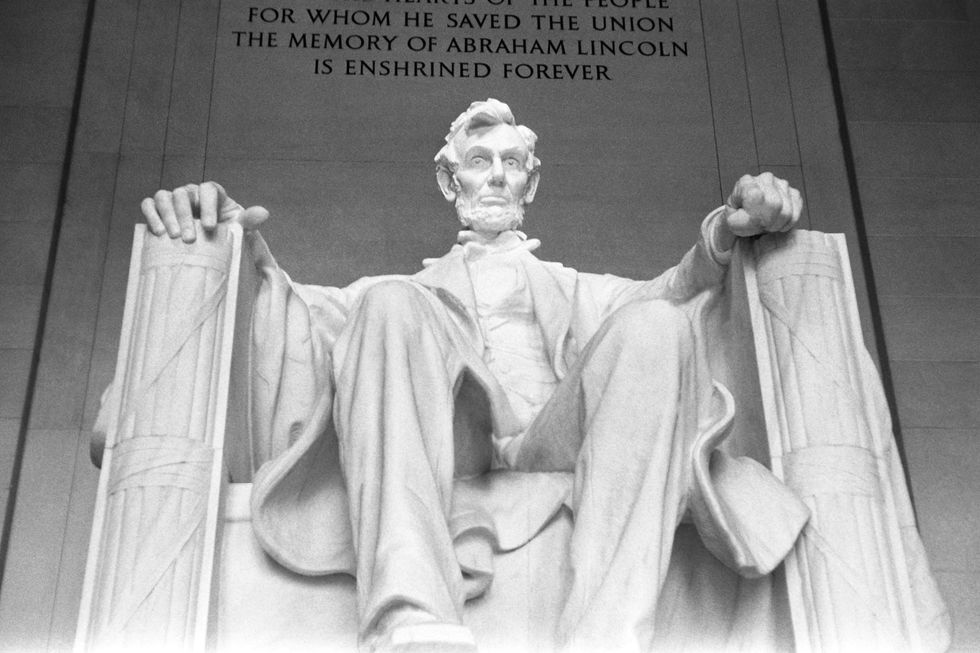
Since its dedication in 1922, the Lincoln Memorial in Washington has honored the president’s legacy. Inspired by the Greek Parthenon, the monument features a 19-foot high statue of Lincoln and engravings of the Gettysburg Address and Lincoln’s Second Inaugural Address. Former President William Howard Taft served as chair of the Lincoln Memorial Commission, which oversaw its design and construction.
The monument is the most visited in the city, attracting around 8 million people per year. Civil rights icon Martin Luther King Jr. delivered his famous “I Have a Dream” speech on the memorial’s steps in 1963.
Lincoln has been the subject of numerous films about his life and presidency, rooted in both realism and absurdity.
Among the earlier films featuring the former president is Young Mr. Lincoln (1939), which stars Henry Fonda and focuses on Lincoln’s early life and law career. A year later, Abe Lincoln in Illinois gave a dramatized account of Lincoln’s life after leaving Kentucky.
The most notable modern film is Lincoln , the 2012 biographical drama directed by Steven Spielberg and starring Daniel Day-Lewis as Lincoln and Sally Field as his wife, Mary Todd Lincoln . Day-Lewis won the Academy Award for Best Actor for his performance, and the film was nominated for Best Picture.
A more fantastical depiction of Lincoln came in the 1989 comedy film Bill and Ted’s Excellent Adventure , in which the titular characters played by Keanu Reeves and Alex Winter travel back in time for the president’s help in completing their high school history report. Lincoln gives the memorable instruction to “be excellent to each other and... party on, dudes!”
Another example is the 2012 action film Abraham Lincoln: Vampire Hunter , based on a 2010 novel by Seth Grahame-Smith. Benjamin Walker plays Lincoln, who leads a secret double life hunting the immortal creatures and even fighting them during the Civil War.
Lincoln’s role during the Civil War is heavily explored in the 1990 Ken Burns documentary The Civil War , which won two Emmy Awards and two Grammys. In 2022, the History Channel aired a three-part docuseries about his life simply titled Abraham Lincoln .
- Those who deny freedom to others deserve it not for themselves.
- I claim not to have controlled events, but confess plainly that events have controlled me.
- No man is good enough to govern another man, without that other ’ s consent.
- I have learned the value of old friends by making many new ones.
- Government of the people, by the people, for the people, shall not perish from the earth.
- Whenever I hear anyone arguing over slavery, I feel a strong impulse to see it tried on him personally.
- To give the victory to the right, not bloody bullets, but peaceful ballots only, are necessary.
- Our defense is in the preservation of the spirit which prizes liberty as the heritage of all men, in all lands, everywhere. Destroy this spirit, and you have planted the seeds of despotism around your own doors.
- Don ’ t interfere with anything in the Constitution. That must be maintained, for it is the only safeguard of our liberties.
- Always bear in mind that your own resolution to succeed is more important than any other one thing.
- With malice toward none; with charity for all; with firmness in the right, as God gives us to see the right, let us strive on to finish the work we are in; to bind up the nation ’ s wounds; to care for him who shall have borne the battle, and for his widow, and his orphan—to do all which may achieve and cherish a just and lasting peace, among ourselves, and with all nations.
- I walk slowly, but I never walk backward.
- Nearly all men can handle adversity, if you want to test a man’s character, give him power.
- I ’ m the big buck of this lick. If any of you want to try it, come on and whet your horns.
- We can complain because rose bushes have thorns.
- Am I not destroying my enemies when I make friends of them?
- It is better to remain silent and be thought a fool than to open one’s mouth and remove all doubt.
Fact Check: We strive for accuracy and fairness. If you see something that doesn’t look right, contact us !
The Biography.com staff is a team of people-obsessed and news-hungry editors with decades of collective experience. We have worked as daily newspaper reporters, major national magazine editors, and as editors-in-chief of regional media publications. Among our ranks are book authors and award-winning journalists. Our staff also works with freelance writers, researchers, and other contributors to produce the smart, compelling profiles and articles you see on our site. To meet the team, visit our About Us page: https://www.biography.com/about/a43602329/about-us
Tyler Piccotti first joined the Biography.com staff as an Associate News Editor in February 2023, and before that worked almost eight years as a newspaper reporter and copy editor. He is a graduate of Syracuse University. When he's not writing and researching his next story, you can find him at the nearest amusement park, catching the latest movie, or cheering on his favorite sports teams.
Civil War Figures
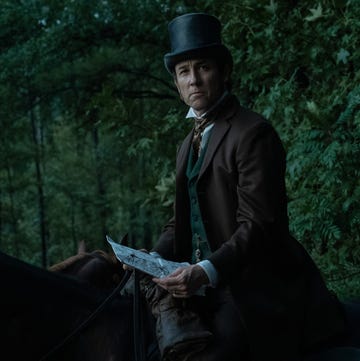
The Manhunt for John Wilkes Booth
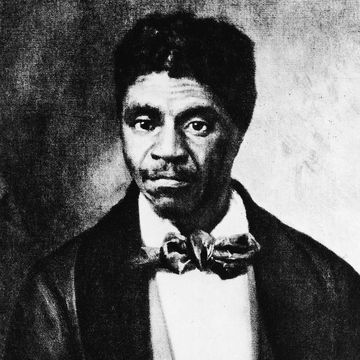
The 13 Most Cunning Military Leaders
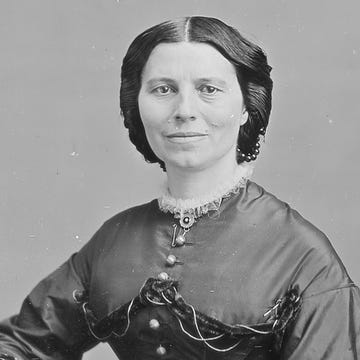
Clara Barton
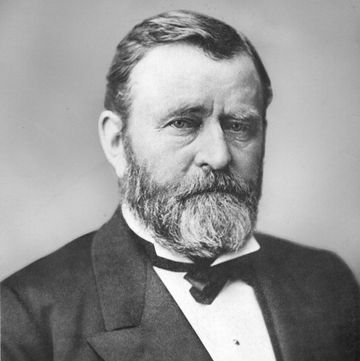
The Story of President Ulysses S. Grant’s Arrest
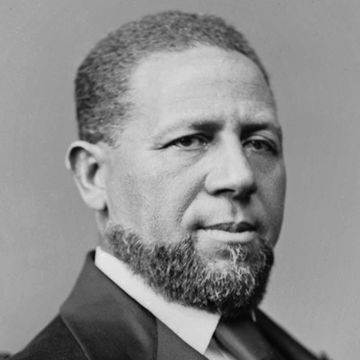
Hiram R. Revels
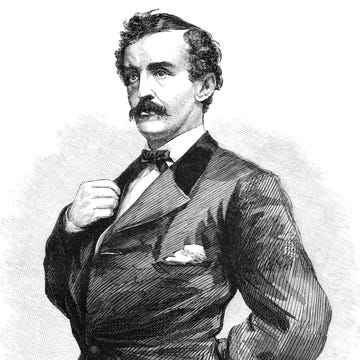
John Wilkes Booth
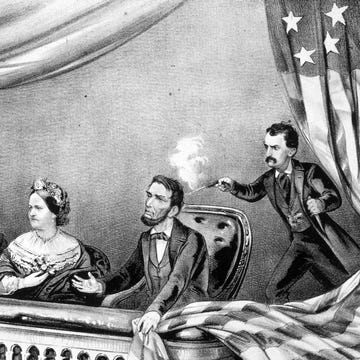
The Final Days of Abraham Lincoln
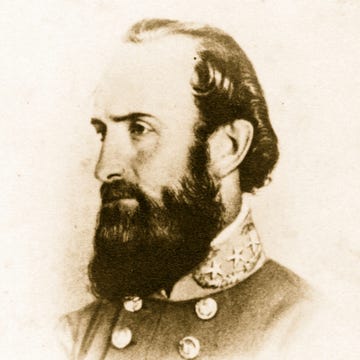
Stonewall Jackson
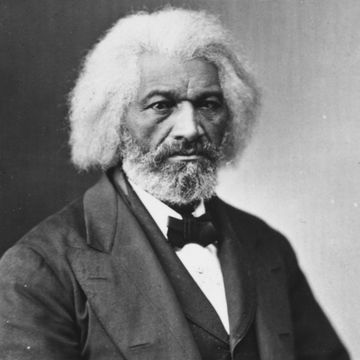
Frederick Douglass
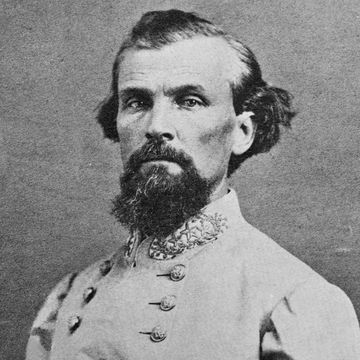
Nathan Bedford Forrest
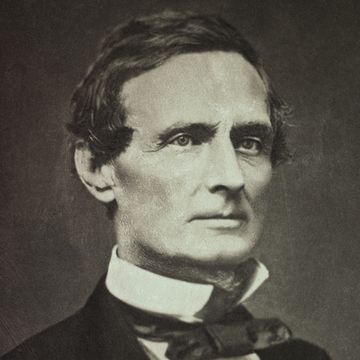
Jefferson Davis
World History Edu
- Abraham Lincoln / Presidents of the United States
9 Great Achievements of Abraham Lincoln
by World History Edu · July 14, 2019
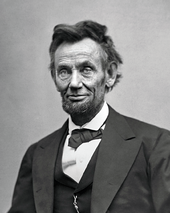
Achievements of Abraham Lincoln
For close to one and half centuries now, Abraham Lincoln (February 12, 1809 – April 15, 1865) has continuously appeared in surveys and in books as one of the three greatest US Presidents of all time (if not the best of all time). In order to find out why Abraham Lincoln was so great, popular and revered by virtually all Americans, as well as the world in general, it is absolutely crucial that we explore who he was and what he stood for.
Facts about Abraham Lincoln
Born – Abraham Lincoln
Date and Place of Birth – February 12, 1809; Hodgenville, Kentucky, United States
Date and Place of Death – April 15, 1865; Washington, D.C., United State
Cause of death : Assassination
Burial place : Lincoln Tomb, Oak Ridge Cemetery, Springfield, Illinois
Most Famous For – Keeping preserving the Union; issuing the Emancipation Proclamation in 1863
Nickname – “Honest Abe”
Parents – Thomas Lincoln and Nancy Hanks
Wife – Mary Todd (1842-1865)
Children – Robert, Edward, Willie, and Tad
Military and political career:
Military Office – Illinois Militia
Rank – Captain
Battles fought in – American Indian Wars (also known as the American Frontier Wars)
Legislature – Member of the Illinois House of Representatives from Sangamon County (1834-1842); Member of the U.S. House of Representatives from Illinois’s 7th district (1847-1849)
Political Party – Whig (before 1854), Republican (1854-1864), National Union (1864-1865)
President of the United States – 16th U.S. President (1861 – 1865)
Preceded by – James Buchanan
Succeeded by – Andrew Johnson
Major Accomplishments of Abraham Lincoln
The following are nine examples of his greatest achievements of Abraham Lincoln:
Became the 16th President of the United States
Coming from the humblest of beginnings, the Kentucky-born Abraham Lincoln (also known as Abe Lincoln) grew up with very little to go around. He fought all odds to gain a decent education. As a matter of fact, Lincoln was a self-educated man. The family barely had anything to make ends meet. But Abraham Lincoln, a man who lost his mother at the age of 8, was determined to leave his mark on the earth.
He independently tutored himself to read and write better. He had no law school training or apprenticeship, but he was still able to gain admission into Illinois bar in 1836. His first taste with public office came after he voted into Illinois legislature in 1834. Gradually and steadily, Abraham Lincoln strolled his way into the hearts of America by giving great speeches and working extremely hard for the downtrodden in the society.
After a lengthy career as a legislator and practicing lawyer, Lincoln contested and won the 1860 presidential election. He defeated Stephen A. Douglas by around 500,000 votes. Abraham Lincoln was sworn into office on March 1, 1861 as the 16th president of the United States of America. As a result of his out-of-this-world heroics in the heat of the American Civil War , Lincoln won a second term in 1864.
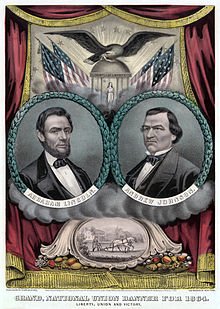
The Lincoln-Johnson pairing sent a strong message to the South. Image: Poster for the Lincoln and Johnson ticket by Currier and Ives
Issued the Emancipation Proclamation of 1863
What could be more divine than abolishing the trade, subjugation and mistreatment of another race? Absolutely nothing! On January 1, 1863, Abraham took a bold decision to end the barbaric practice of slavery. By so doing, he set free all slaves in the United States. This act of his was captured in the Emancipation Proclamation he famously issued in 1863 . This was no mere feat of accomplishment, and it will always rank up there with the Declaration of Independence the Founding Fathers of America issued in 1776.
What the Proclamation did was to enable African American fighters join the profound objective of securing freedom and liberty for every single American, regardless of demographic factors. The Emancipation Proclamation resonates with the very ideals that the Founding Fathers of America believed in.
About a couple of years after Abraham Lincoln’s Emancipation Proclamation, the Thirteenth Amendment of the U.S. constitution was ratified by the needed number of states on 6 December 1865. Prior to its ratification, the Amendment had successfully been passed by the Senate (on April 8, 1864) and the House (on January 31, 1865).

One of Abraham Lincoln’s first public sayings about slavery

Achievements in the Agricultural Sector
The U.S. Department of Agriculture owes its birth to Abraham Lincoln. The exact date of the department’s establishment is May 15, 1862. President Lincoln picked a Commissioner to head the department- a department that he patriotically termed as the ‘people’s department’. Such was the importance of agriculture to American economy during the mid-19 th century. The department’s mandate was to steer the federal government’s effort in promoting economically sustainable agricultural activities all throughout the country- a mandate that the department still patriotically carries out to this day.
Secured Victory for the Union
Abraham Lincoln’s brave handling of the American Civil War definitely came at the expense of his life, as well as the lives of 600,000 Americans. However, had it not been for him, the situation would have been much worse. Perhaps the America that we know of today would not have existed in its current shape or form. Perhaps, had Abraham Lincoln not been around to keep the nation together, the entire American continent might have regressed economically, socially and technologically.

Excerpt from Lincoln’s Second term speech in 1865
Abe Lincoln’s actions and leadership were nothing short of absolute brilliance during the Civil War. And the ideals that he fought for, even at the expense of his life, were divine. Ultimately, his sacrifices culminated in General Robert E. Lee ’s (the commander of the Confederate forces) surrender on April 9, 1865. By defeating the Confederate States, Abraham helped preserve a Union that would go on to be a beacon of democracy across the world.

Union leaders and generals met on March 28, 1865 to discuss the terms of surrender and reconstruction efforts (1863 – 1877) that would take place in the South after the war. Image (left to right): General Sherman, General Grant, Abraham Lincoln, and Admiral Porter,
Rolled Out Plans for Reconstruction
The American Civil War of four years undoubtedly took a massive toll on every facet of the American society. Families were separated; lives were lost; the economy took a nosedive; technological progress was halted; and above all, the people were in a state of despondency. Abraham Lincoln was fully aware of all these—the inevitable ills of wars. Hence, he started making provisions and arrangements for the reconstruction of America. He instituted some of these plans even while the war was raging on. Plans were made on how to bring the Southerners into the federal government. He feared that imposing harsh punishments on the vanquished Southerners could alienate them even further. His ultimate goal was to reunite the country. He sought to ensure that wounds and broken spirits from the war were healed as quickly as possible.
Contrary to what some radical Republicans wanted, Lincoln stuck to the path of rebuilding and reintegrating former foes back into the federal government. He knew that the nation had to forgive first and foremost before any reconstruction can be made. Therefore, in 1863, President Lincoln issued another magnificent proclamation- the Proclamation of Amnesty and Reconstruction.
It was in this spirit of reconciliation and forgiveness that the two fighting sides finally came together and reunited to form a bolder and better United States of America.

Lincoln’s response to his Republican Party after the Civil War ended
Helped Poor Americans Get Access to Lands
Lincoln signed the Homestead Acts of 1862 that enabled the extremely poor in American society obtain lands. All they had to do was dwell on the parcel of federal-granted lands for five or more years. The applicants to the program had to be 21 years or older. Historians believe that this kind social welfare gesture was instituted because of Abe Lincoln’s personal experiences with being have-not himself. Sometime in his childhood, Lincoln personally witnessed his family lose several acres of their land due to legal disputes. His family was then forced to relocate from Kentucky to Indiana in order to secure better land rights (or property rights). Indiana was by then one of the “free” states in America that had relatively more liberal laws.
Therefore, it is likely that while Abe Lincoln signed the Homestead Act of 1862, his vision was to make sure that families in America never suffered the kind of experiences he had as a child.
Signed the Revenue Act of 1862
Most Americans have a mixed sort of feelings about taxes today. The debate always bothers on whether a tax is progressive or not. Should more taxes be levied on the rich in order to redistribute it to the have-nots in the society? Or should the rich in the society be given tax breaks so that they can reinvest those gains back into the society?
One thing is for sure, a nation can never do away with taxes. Guess what? Abraham Lincoln’s tax policy was so progressive for his era that tax experts to this day continue to be dazzled by it. What Lincoln did was that he got the Revenue Act of 1862 passed. Armed with this act, Abe Lincoln was able to create a tax office called the Office of the Commissioner of Internal Revenue. This is the same office that we now call the Internal Revenue Service (IRS). Then, he tasked this office to coordinate tax collection across the nation. Within a very short period of time Americans were then sorted out into different categories depending on their incomes. This allowed for greater equity as opposed to the tax schemes that existed before Lincoln came into office.
Reformed the Banking Sector
Another very crucial act that came to life during Abe Lincoln’s presidency was the National Banking Act of 1863. Federal officials and the government in general had always known how important banks were to the American economy. However, very few presidents, since the birth of the nation, ever embarked on instituting reforms in the banking system. That was not the case with President Abraham Lincoln.
Amidst all the chaos during the American Civil War, Lincoln was determined to establish strong pillars within the nation’s financial sector. Out of this initiative also came a national currency.
Furthermore, with adequate reforms in the banking sector, the banks were more able and willing to give out credit facilities to fund infrastructural projects across the country.
Signed the Morrill Land-Grant Colleges Act
The numerous universities and colleges littered across present-day America certainly owe Abraham Lincoln a lot of gratitude. It all had to do with the Morrill Land-Grant Colleges Act that Abraham Lincoln signed on July 2, 1862. The Act was to encourage existing and new colleges to go into three main areas- engineering, agriculture and military education. Had it not been for the stimulus package that came with the Morrill Land-Grant Act, many of America’s fine institutions of higher learning would not have been around.
Frequently Asked Questions about Abraham Lincoln

Abraham Lincoln was the 16th President of the United States, serving from 1861 to 1865. He is best known for leading the country during the American Civil War and for his efforts to end slavery in the U.S. Image: Statue of Abraham Lincoln
When was Abraham Lincoln born and when did he die?
Abe Lincoln was born on February 12, 1809, in Hardin County, Kentucky, and was assassinated on April 14, 1865. He died the following day, April 15, 1865.
Who assassinated Abraham Lincoln?
Abraham Lincoln was assassinated by John Wilkes Booth, a Confederate sympathizer, while attending a play at Ford’s Theatre in Washington, D.C.

Incensed by the defeat of the South in the American Civil War, Booth joined a clandestine group of radical Americans that sought to kill Lincoln and top-ranking members of president’s cabinet, including Secretary of State William H. Seward and Vice President Andrew Johnson.
What were the Emancipation Proclamation and the Gettysburg Address?
The Emancipation Proclamation, issued by Lincoln on January 1, 1863, declared the freedom of all slaves in Confederate-held territory. The Gettysburg Address, delivered on November 19, 1863, was a brief speech by Lincoln during the Civil War at the dedication of the Soldiers’ National Cemetery in Gettysburg, Pennsylvania.
Did Lincoln ever own slaves?
No, Abraham Lincoln never owned slaves. He is known for his opposition to slavery and his efforts to abolish it.

Abraham Lincoln’s response to pro-slavers, as well as the 1857 Dred Scott v. Sandford decision
How did Lincoln come into politics?
Lincoln began his political career in the Illinois State Legislature as a member of the Whig Party in 1834. He later served a single term in the U.S. House of Representatives and was eventually elected as the U.S. President as a Republican in 1860.
Was Lincoln re-elected?
Yes, Abraham Lincoln was re-elected for a second term as President in 1864.
What were Lincoln’s views on slavery?
Lincoln believed that slavery was morally wrong and worked towards its abolition. However, he initially focused on preventing its expansion into new U.S. territories before championing its complete abolition with the Emancipation Proclamation.
What is the significance of the Lincoln-Douglas debates?
The Lincoln-Douglas debates were a series of seven debates in 1858 between Abraham Lincoln and Stephen A. Douglas during their campaign for a U.S. Senate seat from Illinois. The debates primarily focused on the issue of slavery and its expansion into the territories. Though Lincoln lost the Senate race, the debates helped him gain national recognition.
Where is Abraham Lincoln buried?
Abraham Lincoln is buried in the Lincoln Tomb at Oak Ridge Cemetery in Springfield, Illinois.
What impact did Lincoln have on the United States?
Abraham Lincoln preserved the Union during its greatest internal crisis, the Civil War. He also signed the Emancipation Proclamation, leading to the abolition of slavery in the U.S. His leadership qualities, speeches, and decisions have left a lasting impact on the nation, shaping its core values and principles.
Tags: 16th President of the United States of America Abe Lincoln Achievements of Abraham Lincoln Civil War Era Emancipation Proclamation
You may also like...

President Warren G. Harding: 5 Horrendous Scandals that plagued his Presidency
August 6, 2020
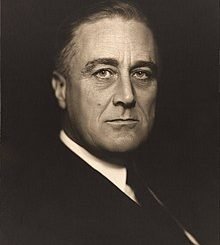
Franklin D. Roosevelt: Life, Presidency & Death
June 22, 2019

George Washington – Biography & Presidency
March 12, 2019
- Pingbacks 1
[…] 9 Greatest Achievements of Abraham Lincoln […]
Leave a Reply Cancel reply
Your email address will not be published. Required fields are marked *
Save my name, email, and website in this browser for the next time I comment.
- Next story 10 Popular Inventions of the Industrial Revolution
- Previous story Excalibur – Origin Story, Myths & Powers
- Popular Posts
- Recent Posts

Who are the Yōkai?

Acadia: A Colony of New France

Meaning and origin story of the phrase “Sic semper tyrannis”

Queen Anne’s War

Giovanni da Verrazzano (1485–1528): Life and Adventures of the Italian Explorer and Navigator

Greatest African Leaders of all Time

Queen Elizabeth II: 10 Major Achievements

Donald Trump’s Educational Background

Donald Trump: 10 Most Significant Achievements

8 Most Important Achievements of John F. Kennedy

Odin in Norse Mythology: Origin Story, Meaning and Symbols

Ragnar Lothbrok – History, Facts & Legendary Achievements

9 Great Achievements of Queen Victoria

Most Ruthless African Dictators of All Time

12 Most Influential Presidents of the United States

Greek God Hermes: Myths, Powers and Early Portrayals

Kamala Harris: 10 Major Achievements

Kwame Nkrumah: History, Major Facts & 10 Memorable Achievements

8 Major Achievements of Rosa Parks

How did Captain James Cook die?

Trail of Tears: Story, Death Count & Facts

5 Great Accomplishments of Ancient Greece

Most Famous Pharaohs of Egypt

The Exact Relationship between Elizabeth II and Elizabeth I

How and when was Morse Code Invented?
- Adolf Hitler Alexander the Great American Civil War Ancient Egyptian gods Ancient Egyptian religion Apollo Athena Athens Black history Carthage China Civil Rights Movement Cold War Constantine the Great Constantinople Egypt England France Hera Horus India Isis John Adams Julius Caesar Loki Medieval History Military Generals Military History Napoleon Bonaparte Nobel Peace Prize Odin Osiris Ottoman Empire Pan-Africanism Queen Elizabeth I Religion Set (Seth) Soviet Union Thor Timeline Turkey Women’s History World War I World War II Zeus

On this day in history, September 23, 1806, Lewis and Clark return to St. Louis as heroes after journey
U .S. Army Captain Meriwether Lewis , 2nd Lt. William Clark and their Corps of Discovery returned to St. Louis to a hero's welcome after their epic journey to the Pacific Ocean on this day in history, Sept. 23, 1806.
"We were met by all the village and received a hearty welcome from its inhabitants," wrote Clark as their expedition returned to the Gateway to the West .
"We Suffered the party to fire off their pieces as a salute to the town."
Their epic continental sojourn, easily covered by air travel today in mere hours, lasted 28 months and covered 8,000 miles of an undulating route largely following the Missouri and Columbia rivers.
ON THIS DAY IN HISTORY, SEPTEMBER 22, 1862, ABRAHAM LINCOLN PROCLAIMS SLAVES WILL SOON BE ‘FOREVER FREE’
"What happened to the Corps is a great story, brimming with energy and full of forward motion," enthused historian James P. Ronda in a 2003 retrospective in Smithsonian Magazine.
READ ON THE FOX NEWS APP
"In extraordinary settings, a remarkable cast of characters encountered adversity of epic proportions and struggled through one adventure after another."
The expedition included about three dozen members.
Among the multicultural band of explorers: Clark's slave, York, whose skin color shocked natives who had never seen a black person before; celebrated Shoshone native Sacagawea; and her French Canadian-Native American son Jean-Baptiste Charbonneau, born on the journey in present-day North Dakota in 1805.
Clark cared for the boy after Sacagawea died in 1812.
Seaman, Clark's Newfoundland dog, also made the journey.
UNIVERSITY OF VIRGINIA'S STUDENT NEWSPAPER CALLS TO REMOVE THOMAS JEFFERSON'S NAME FROM CAMPUS
The expedition took the Corps through what was then the forbidden North American wilderness , unexplored by Europeans, largely unmapped for posterity by humans and inhabited by flora, fauna and native tribes unknown to the outside world.
Among the curiosities they encountered and recorded to the amazement of European Americans were 178 plants, 122 animals — including grizzly bears — and the indigenous Clatsop people in what's now Oregon, one of many "Flathead" tribes of the Pacific Northwest.
"The most remarkable trait in their physiognomy," wrote Lewis, "is the peculiar flatness and width of forehead, which they artificially obtain by compressing the head between two boards while in a state of infancy and from which it never afterward perfectly recovers … From the top of the head to the extremity of the nose is one straight line."
The Corps was commissioned by President Thomas Jefferson while he was working to acquire the sprawling Louisiana Territory from France in 1803.
"Even before negotiations with France were finished, Jefferson asked Congress to finance an expedition to survey the lands of the so-called Louisiana Purchase and appointed Lewis as expedition commander," according to History.com.
THE AMERICAN LEGION TURNS 103: A BRIEF HISTORY OF THE ORGANIZATION FORMED TO AID WWI VETERANS
The Corps of Discovery departed on May 14, 1804, reached the Pacific on Nov. 7, 1805, wintered on the Columbia River near present-day Astoria, Oregon , and began the return journey to St. Louis on March 23, 1806.
Both Lewis and Clark kept detailed accounts of the journey.
They left for posterity a rich repository of insight into the natural landscape, the continent's native inhabitants and their own daily battles for survival.
Remarkably, all but one member of the expedition, Sgt. Charles Floyd, lived to complete the journey. He died on Aug. 20, 1804, perhaps of a ruptured appendix, upon what's now known as Floyd's Bluff on the Missouri River in Sioux City, Iowa .
"Lewis and Clark's journals record for us not only a story of astonishing personal courage but also a powerful parable of trust within the human community," writes editor Landon Y. Jones in his 2000 account of their diaries, "The Essential Lewis and Clark."
"On one level, Lewis is the more sophisticated storyteller," he wrote.
"Clark on the other hand is blunter, earthier and more to the point."
Among hundreds of other human insights in their records, the Corps of Discovery celebrated the young nation's independence on July 4, 1805, with their remaining stock of spirits, music and dancing in what's now Great Falls, Montana.
"The fiddle was played and they danced very merrily," wrote Lewis of his team.
"They continued their mirth with songs and festive jokes and were extremely merry until late at night."
"That evening the first Americans ever to enter Montana, the first to ever see the Yellowstone, the Milk, the Marias and the Great Falls, the first Americans ever to kill a grizzly, celebrated their nation's 29th birthday," wrote Stephen Ambrose in his 1996 history, "Undaunted Courage: Meriwether Lewis, Thomas Jefferson and the Opening of the American West."
CLICK HERE TO SIGN UP FOR OUR LIFESTYLE NEWSLETTER
"It is with pleasure that I announce to you the safe arrival of myself and party," Lewis wrote to President Jefferson on the day of their return to St. Louis.
For more Lifestyle articles, visit www.foxnews.com/lifestyle
"In obedience to your orders we have penetrated the continent of North America to the Pacific Ocean, and sufficiently explored the interior of the country to affirm with confidence that we have discovered the most practicable rout which [does] exist across the continent by means of the navigable branches of the Missouri and Columbia Rivers."
Original article source: On this day in history, September 23, 1806, Lewis and Clark return to St. Louis as heroes after journey

- SOCIAL MEDIA

Abraham Lincoln
By ha ram from san diego.
X-ray vision and super strength characterize a hero in movies. However, true heroes act with the intention of benefiting others rather than themselves. All actions of a hero are noble and selfless.
One word describes Abraham Lincoln’s early days: misery. Born in a small log house in Kentucky, luxury was seemingly impossible to attain. His ambitions for education and significance in society were forcibly buried under his father’s will for him to be a farmer. In order to survive, he had to chop wood; success dwindled down to only a dream. The most education he received as a boy was during infrequent attendance at a log cabin schoolhouse, with books barely within his reach. As if that wasn’t enough, he lost three family members during his childhood. However, despite his impossible circumstances and background, he rose to the presidency and made choices that changed American history forever. Sixteenth President of America, successful leader during the American Civil War, and Great Emancipator, all define Abraham Lincoln. But deeper within his worldly titles and stovepipe hat rests the wisdom and selflessness of a true hero.
Abraham Lincoln was a man of many achievements. He made his public debut during the famous Lincoln-Douglas debates in which he expressed his opposition against slavery. As the years progressed, Lincoln gained respect from citizens. In 1861, he rose to executive power as a Republican, soon strategically leading the nation in the bloodiest war in American history. A natural speechwriter and inspirational speaker, he “spurred on his people” (Holzer) through arduous circumstances. Because of his leadership, the Union and Confederacy became one united nation. On top of that, liberated slaves and hardworking abolitionists praised Lincoln as he published the Emancipation Proclamation. After the war, the proclamation was sealed with the Thirteenth Amendment which “had the beneficial effect of adding a moral aspect to the Union cause” (DISCovering Biography). Lincoln’s politic guidance brought a ray of hope to the healing nation.
His success was only made possible due to his careful choices and wisdom. “In conducting a bitter war, Lincoln never became bitter himself. He showed a nobility of character that had worldwide appeal” (Holzer). Not expressing bitterness in public was wise, because it made his people hopeful for a good outcome; this allowed the citizens to feel secure, limiting inner turmoil. A wise person will remain calm, even during the worst circumstances in order to maintain peace. “The war brought out his best qualities, as he rose to each new challenge. Lincoln was a master politician, and he timed his actions to the people’s moods. He led by persuasion” (Holzer). He had clever plans with which he carefully led the people. He never forced anything and still succeeded in being the head of a nation. As if not to arouse his devastated people, he judged according to their favor. His choices and actions brought out his wisdom.
Despite his spectacular achievements, Abraham Lincoln never failed to be selfless. After the Union victory, “Lincoln delivered his famous second inaugural address, urging a gentle hand toward southerners in the postwar world” (Holzer). After a tedious war due to rebellious people, anyone in his shoes would want a form of chastisement upon the rebels. But instead of pursuing a possible desire to punish, he did what he could to preserve the Union. His generosity prevented the nation from splitting and restored peace between the enemies. He served the nation even though he was in the most respected position as President. A true hero knows to selflessly lower himself for the good of others.
Although it seemed impossible for the poor farmer to blossom, he conquered all to become the nation’s hero. Even over a century since his death, he continues to inspire citizens all over the globe. In his “Gettysburg Address”, Lincoln said “and that government of the people, by the people, for the people, shall not perish from the Earth.” He reminds people of the basic principle upon which the nation was established. The speech advises posterity to let the people have a say in their government. As long as the people are happy, the country will remain strong. Also, in his “House Divided” speech, Abraham Lincoln proclaimed, “A house divided against itself cannot stand.” A house is where a family lives, caring and encouraging each other through thick and thin. A nation should be as such. If a nation truly is a family, no conflict should stand. He provided the core values for which a nation should strive.
Although Abraham Lincoln had no physical “supernatural” powers, he used ultimate wisdom and humility to deliver a whole nation from a grave crisis. Spiderman and Batman may have saved a city or two, but Lincoln saved America.
Page created on 10/20/2010 12:00:00 AM
Last edited 1/6/2017 9:53:22 PM
Related Links

Lincoln Heritage Museum remains open for normal operating hours (Tuesday-Friday 9 am to 4 pm and Saturday 1 pm to 4 pm), despite the closure of Lincoln College in May of 2022.

abraham lincoln character qualities

Abraham Lincoln and Character
Abraham Lincoln is an exemplar and a model of virtue perhaps more than any person in world history other than religious figures. He holds a special place in our collective memory in part because of his great accomplishments, but more importantly, because of certain character qualities so famously attributed to him. But, as great as he was, Lincoln was not born with these character virtues. He honed and practiced and developed them daily, and so should we. Lincoln was far from a perfect individual. He possessed human flaws and made many mistakes in his life as we all do. However, he learned from his mistakes and learned how to compensate for his own personal shortcomings. As the famed African-American spokesman W.E.B. DuBois said in 1922 regarding Lincoln: “I love him not because he was perfect but because he was not and yet triumphed.” No matter who Abraham Lincoln met with, he believed to his core that all people deserved equal treatment. Through constant practice and diligent effort, even when Lincoln attained the high political position of president, he treated others whom he encountered with honesty, humility, courage, justice, and grace.
Even in Lincoln’s own lifetime people were fascinated by him. Right before his death he cascaded into the national folklore, and generations later we are still attracted to the greatness of Abraham Lincoln and his character virtues. His life examples provide powerful lessons: being honest in all dealings; possessing a never-ending quest to learn; facing fears and overcoming defeat; treating others with compassion, kindness, and respect as you would like to be treated; standing up for, and standing firm in, what is right; and rising to the highest heights if willing to work hard. We need these lessons more today than ever before. Those lessons can and must be constantly encouraged and integrated into every fabric of society, education, business, and government into both young and old.
Among the character qualities emphasized at the Abraham Lincoln Center for Character Development:
- Honesty – striving for dealing with individuals and situations fairly and with truth
- Empathy – showing concern and attempting to understand the feelings of others
- Humility – working for the betterment of others, and in the interest of others over self
- C ivility - showing politeness and respect to others even with whom you disagree
- Perseverance – showing hope and determination in the face of defeats and loss
- Courage – bravely standing for what is right in the face of opposition and personal fears
- Intellect – continually learning all one can about the world around us
- Vision – being governed by a firm set of principles & attainable ideas about the future
- Responsibility – willingness to work hard and to do one’s duty as a citizen
- Leadership – showing an ability to lead others in service and with justice & fairness
Abraham Lincoln Character Quotes to Live By

Washington Monthly
Lincoln: No Hero to Native Americans
Share this:.
- Click to share on Facebook (Opens in new window)
- Click to share on X (Opens in new window)
The Emancipation Proclamation was in many ways a tremendous step forward for human rights, but it didn’t bring any new rights to Native Americans.
In fact, Abraham Lincoln is not seen as much of a hero at all among many American Indian tribes and Native peoples of the United States, as the majority of his policies proved to be detrimental to them. For instance, the Homestead Act and the Pacific Railway Act of 1862 helped precipitate the construction of the transcontinental railroad, which led to the significant loss of land and natural resources, as well as the loss of lifestyle and culture, for many tribal people. In addition, rampant corruption in the Indian Office, the precursor of the Bureau of Indian Affairs, continued unabated throughout Lincoln’s term and well beyond. In many cases, government-appointed Indian agents outright stole resources that were supposed to go to the tribes.
In other cases, the Lincoln administration simply continued to implement discriminatory and damaging policies, like placing Indians on reservations. Beginning in 1863, the Lincoln administration oversaw the removal of the Navajos and the Mescalero Apaches from the New Mexico Territory, forcing the Navajo to march 450 miles to Bosque Redondo—a brutal journey. Eventually, more than 2,000 died before a treaty was signed.
Several massacres of Indians also occurred under Lincoln’s watch. For example, the Dakota War in Minnesota in 1862 led to the hanging of thirty-eight Indian men—303 Indian men had been sentenced to hang, but the others were spared by Lincoln’s pardon. The Sand Creek Massacre in southeastern Colorado in 1864 also resulted in the deaths of hundreds of Cheyenne and Arapaho.
On a more positive note, Pueblo leaders received silver-headed ebony canes in 1863 engraved with Lincoln’s name to symbolize their sovereignty. These canes are still revered and used for ceremonial purposes today.
W. Dale Mason describes Lincoln’s policy toward Native Americans in his essay “The Indian Policy of Abraham Lincoln.” “President Lincoln … continued the policy of all previous presidents of viewing Indian as wards of the government while at the same time negotiating with them as sovereigns,” Mason writes. “He made no revolutionary change in Indian-white relations as he did in black-white relations with the Emancipation Proclamation. While he called for reform of the Indian system in his last two Annual Messages to Congress, he provided no specifics and he continued the policy, already in place, of confining Indians to reservations after negotiating treaties.”
What’s clear is that the Emancipation Proclamation did not end discrimination against Native Americans. There are many wounds that still need to be healed.
Click here to read more from our Jan/Feb 2013 cover package “Race, History, and Obama’s Second Term.”

Sherry Salway Black
Sherry Salway Black is director of the Partnership for Tribal Governance National Congress of American Indians.

IMAGES
VIDEO
COMMENTS
Abraham Lincoln (/ ˈ l ɪ ŋ k ən / LINK-ən; February 12, 1809 - April 15, 1865) was an American lawyer, politician, and statesman who served as the 16th president of the United States from 1861 until his assassination in 1865. He led the United States through the American Civil War, defending the nation as a constitutional union, defeating the insurgent Confederacy, playing a major role ...
Abraham Lincoln. Lincoln was born on February 12, 1809, to Nancy and Thomas Lincoln in a one-room log cabin in Hardin County, Kentucky. His family moved to southern Indiana in 1816. Lincoln's ...
Abraham Lincoln (born February 12, 1809, near Hodgenville, Kentucky, U.S.—died April 15, 1865, Washington, D.C.) was the 16th president of the United States (1861-65), who preserved the Union during the American Civil War and brought about the emancipation of enslaved people in the United States. 1 of 2.
Abraham Lincoln was the 16 th president of the United States, serving from 1861 to 1865, and is regarded as one of America's greatest heroes due to his roles in guiding the Union through the ...
Abraham Lincoln was sworn into office on March 1, 1861 as the 16th president of the United States of America. As a result of his out-of-this-world heroics in the heat of the American Civil War, Lincoln won a second term in 1864. The Lincoln-Johnson pairing sent a strong message to the South. Image: Poster for the Lincoln and Johnson ticket by ...
"Discover the incredible journey of Abraham Lincoln, from his humble beginnings to becoming a national hero. Learn how he shaped America, ended slavery, and ...
ON THIS DAY IN HISTORY, SEPTEMBER 22, 1862, ABRAHAM LINCOLN PROCLAIMS SLAVES WILL SOON BE 'FOREVER FREE' ... 1806, Lewis and Clark return to St. Louis as heroes after journey.
Before Abraham Lincoln was an icon, he was a man. Before he was a president, he was a husband, a father, and a young lawyer struggling to make ends meet. Lea...
Sixteenth President of America, successful leader during the American Civil War, and Great Emancipator, all define Abraham Lincoln. But deeper within his worldly titles and stovepipe hat rests the wisdom and selflessness of a true hero. Union and Confederacy of the time. Abraham Lincoln was a man of many achievements.
Abraham Lincoln and Character. Abraham Lincoln is an exemplar and a model of virtue perhaps more than any person in world history other than religious figures. He holds a special place in our collective memory in part because of his great accomplishments, but more importantly, because of certain character qualities so famously attributed to him.
The Abyss is the climax of a hero's journey; it's the stage in the journey where the hero must face "the big one". The nation of the United States is just a young blooming country but is facing difficult times; which is what pulled Lincoln in. In the mid-1800's, the issue over slavery threatens to tear apart the Union.
Furthermore, heroes tend to follow a particular sequence of events, referred to as a " Hero 's Journey.". Abraham Lincoln was a hero because he follows Joseph Campbell's "Hero's Journey" and was a vehicle of change for the United States of America. Lincoln grew up in a very modest setting, and lived on the edge of poverty.
Abraham Lincoln was on a Hero's Journey in his life long quest to become president. In Lincoln's case, his Hero's Journey made him aware of the lessons and stories in every day experiences. Life had meaning and seemingly random incidents held significance. He could draw out the deeper gist that existed just below the surface of most ...
Illustration of the hero's journey. In narratology and comparative mythology, the hero's quest or hero's journey, also known as the monomyth, is the common template of stories that involve a hero who goes on an adventure, is victorious in a decisive crisis, and comes home changed or transformed.. Earlier figures had proposed similar concepts, including psychoanalyst Otto Rank and amateur ...
Hero's Journey: Abraham Lincoln Meeting with the mentor return with elixir (freedom to live) Who is Abraham Lincoln? Abraham Lincoln, nicknamed "Abe" was born on February 12th, 1809 at a farmland in Hardin County, Kentucky. His parents were Thomas Lincoln and Nancy Lincoln, and.
Abraham Lincoln's Hero Journey Crossing the Threshold In his second campaign for a seat in the Illinois General Assembly Lincoln is successful Lincoln ran as a Whig party member Lincoln then moved to Springfield Call to Adventure Refusal of Return Entering the Road of Trials. Get started for FREE Continue.
The Emancipation Proclamation was in many ways a tremendous step forward for human rights, but it didn't bring any new rights to Native Americans. In fact, Abraham Lincoln is not seen as much of ...
Abraham Lincoln His Civil War Journey Olivia Cockey Ms. Schwitz English 4 March 21, 2016 Master of Two Worlds Mundane World Crossing the Threshold -When the war was over, Lincoln was known as a hero for his bravery and the way he set a goal and achieved it. Today, he is still
For example, Abraham Lincoln was a hero that reunited a country and led the North to victory. Lincoln was the sixteenth president of the United States. He was the president during the Civil War and he created the Emancipation Proclamation which ended slavery in the South. He was a leader and he was a hero. In 1865 Abraham Lincoln was assassinated.
"The best way to predict the future is to create it."- Abraham Lincoln The Transformation On January 1st 1863 Lincoln signed the Emancipation Proclamation, freeing around 4 million slaves. As an effect of this taking place, the civil war changed from being a war of preservation,
The Heroes Journey The Ordinary World Abraham Lincoln was born on February 12th, 1809 in Hardin County, Kentucky. He and his Family moved to Indiana in 1816, and Lincoln had to work very hard to support his family. The ordinary world The call to adventure George Washington was a
Abraham Lincoln The Hero's Journey Aiden Ash Abraham Lincoln "The best thing about the future is it comes one day at a time" Call to Adventure 1 In the Mid 1800's , slavery was threatning the nation The Southern states aprooved slavery while the Northern states opposed it. Refusal.